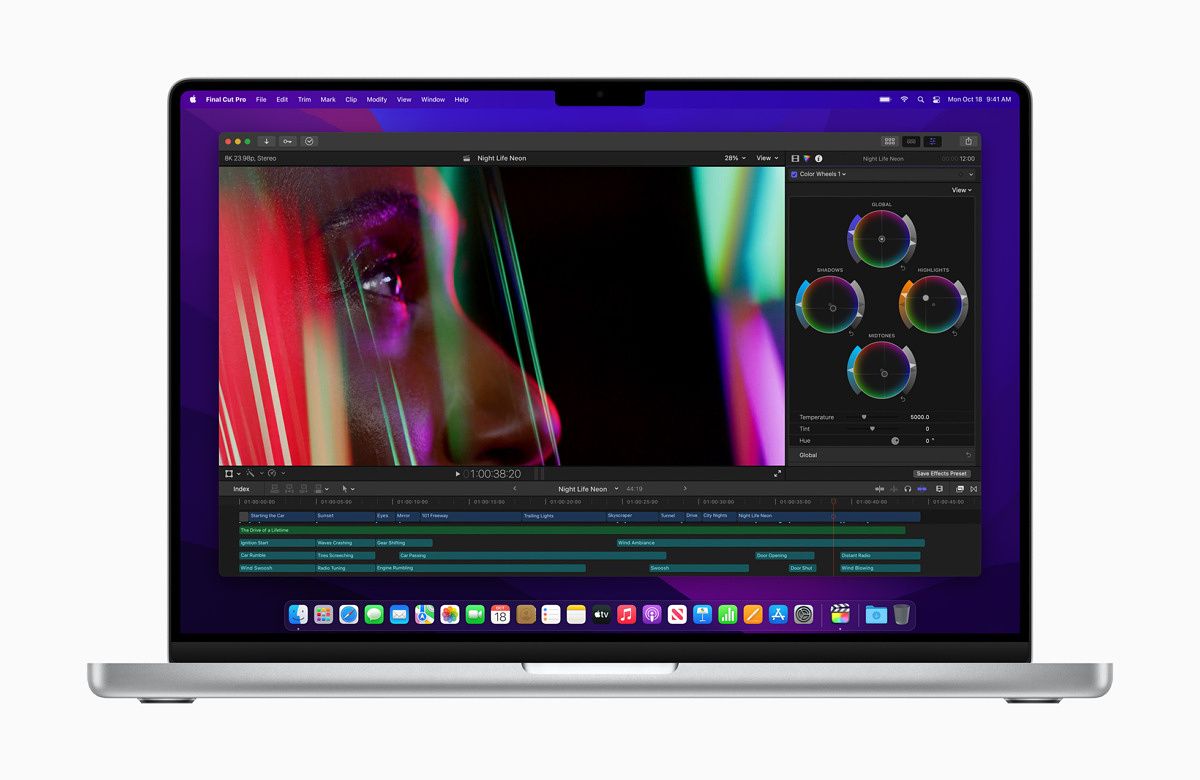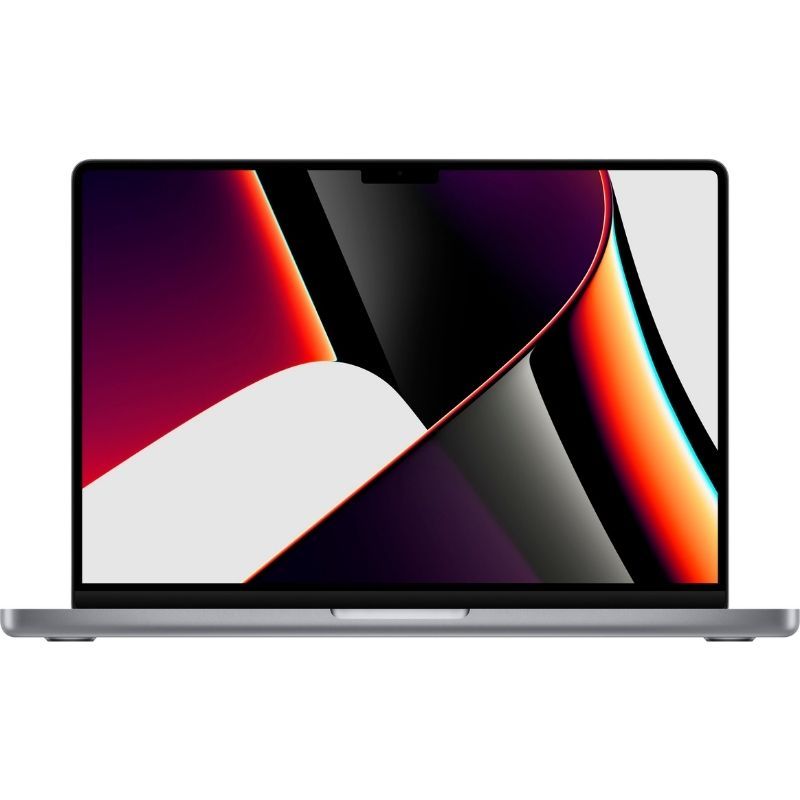Deciding which Apple MacBook to buy used to be a simple task with just a couple of options to choose from. The performance gap between the older MacBook Air and the MacBook Pro models also made it relatively easier to decide which one to buy. Now, there are as many as four different MacBooks to choose from, that too with multiple SKUs. Between last year’s M1 and the new M1 Pro/M1 Max chips, it’s safe to say Apple has built a strong foundation for the MacBooks, and the MacBook Air vs Pro buying decision is harder than ever. We’ve already stacked the new MacBook Pro 14 and MacBook Pro 16 against each other to highlight some of the differences. But it’s time to tackle another important comparison – MacBook Air vs MacBook Pro 14 (2021).
Navigate this article:
MacBook Air vs MacBook Pro 14 (2021): Specifications
Here’s a quick look at the specifications of each notebook to see what you get for the price:
| Specification | MacBook Air M1 | MacBook Pro 14 (2021) |
|---|---|---|
| Processor: |
|
|
| Graphics: |
|
|
| Unified Memory: |
|
|
| Storage (SSD): |
|
|
| Display: |
|
|
| Webcam: |
|
|
| Battery: |
|
|
| Ports: |
|
|
| Connectivity: |
|
|
| Size (WxDxH): |
|
|
| Weight: |
|
|
| Colors: |
|
|
| Starting price: |
|
|
We’ve laid out the specifications for you to compare the two devices. It’s safe to say the MacBook Pro 14 (2021) is the better device, at least on paper. But the MacBook Air is still powerful enough to handle most tasks and is less likely to burn a huge hole in your wallet. Let’s look at some other aspects to help you decide which MacBook will best suit your needs.
MacBook Air vs MacBook Pro 14 (2021): Design and ports

Apple has made some worthwhile improvements in the design department over the years, but the overall quality remains the same. Both MacBook Air and Pro still share the same aluminum chassis and have a lip at the front of the base to let you open them easily. The new MacBook Pro 14 is fresh out of the oven sporting a new squared-off design with flat edges. It now looks somewhat similar to the older MacBook Pro notebooks, at least from the outside. Notably, Apple has also added small feet on the underside which is new to the MacBook Pro 2021 models. The MacBook Air, on the other hand, has a tapered-wedge design, as it always has. Nothing’s changed here, really.

While the MacBook Pro models are limited to Silver and Space Grey colorways, you can buy the MacBook Air in Gold color too. If you squint you’ll notice that the MacBook Air is a smidge thicker than the MacBook Pro at its thickest point. But they both have the same footprint and the MacBook Air weighs less. It’s also a relief that both MacBooks are now built around Apple’s Magic Keyboard as opposed to the doomed “butterfly” keyboard. Apple has ditched the Touch Bar on the MacBook Pro 14 in favor of a dedicated function key row. The rest of the stuff on the keyboard deck remains pretty much the same.
The speakers are located on both sides of the keyboard in both MacBooks, but the actual speakers themselves are different. The new MacBook Pro comes with a six‑speaker system to support spatial audio when playing music or video with Dolby Atmos. This is a huge upgrade over the standard stereo speakers found on the MacBook Air.

Moving on to the ports selection, the MacBook Air from last year only has two Thunderbolt 3 ports. This means you’ll need a dongle to connect peripherals and displays to it. The MacBook Pro 14 fixes that with a better port selection. It includes two Thunderbolt 4 ports, an HDMI port, an SDXC card reader, and a MagSafe 3 port. It’s never a bad thing to have more ports, and we’re glad to see Apple going back to its roots.
MacBook Air vs MacBook Pro 14 (2021): Display

The MacBook Air features a 13.3-inch LED-backlit IPS panel with a resolution of 2560 x 1600 pixels. It’s a standard Retina display with a peak brightness of 400 nits, support for a wide P3 color gamut, and true tone technology. This isn’t particularly a bad display but Apple has made some improvements to offer a higher quality display on the new MacBook Pro notebooks. It has a slightly bigger 14.2-inch mini-LED backlit display with a resolution of 3024 x 1964 pixels. Apple calls it Liquid Retina XDR display.

Besides the obvious bump in size, the 14-inch MacBook Pro display also has a higher sustained brightness of up to 1000 nits (1600 nits peak) and it supports ProMotion technology for adaptive refresh rates up to 120Hz. You’re also looking at fewer bezels around the panel due to which the company has introduced a webcam notch. Apple says it won’t impact fullscreen viewing or using creative applications, but we think Apple’s solution is notch the right one. There are other ways to add a better webcam and we hope Windows OEMs don’t end up following Apple’s lead, which we assume they will.
Performance: Significant improvements for the MacBook Pro

Right off the bat, we like how the new MacBook Pro notebooks have more configurations to choose from. Apple’s original M1 chip powering the MacBook Air has an 8-core CPU and a GPU. You can also configure it only for up to 16GB of unified memory. The new 14-inch MacBook Pro, on the other hand, can be configured with either an M1 Pro or an M1 Max chip. Additionally, you can also choose between a 14-core, 16-core, 24-core, or 32-core GPU on these notebooks. If that’s not enough, then you can also configure it with up to 64GB of unified memory, which is a significant upgrade for power users. Having more SKUs allows users to cherry-pick the specs to suit their needs.

It goes without saying the new M1 Pro and M1 Max chips are significantly more powerful than the last year’s M1 chip. It makes the new MacBook Pro notebooks a no-brainer for creative professionals looking to get the most out of their portable laptops. The M1-powered MacBook Air is still a great notebook for, say, a student or a working professional simply looking for a reliable notebook for day-to-day workflow. You can check out our M1 Pro vs M1 Max comparison if you need help deciding which of the new Apple chipsets will best suit your needs.
Portability: Hardly any difference
Despite having a slightly bigger screen, the new MacBook Pro 14 (2021) has the same footprint as the MacBook Air. Both notebooks occupy the same space on your table and inside your backpack. The new 14-inch MacBook Pro is a hair thinner than the MacBook Air but it’s 0.7lbs heavier. The difference in weight is mainly due to the upgraded internals and a larger battery. The MacBook Pro 14 (2021) packs a 70Whr battery as opposed to the smaller 49.9Whr inside the MacBook Air. But besides the weight difference, both laptops really aren’t any different when it comes to dimensions. The 16-inch MacBook Pro is the one that demands more space, not the 14-inch model.
Final Thoughts
So, which MacBook should you buy? Well, if you want a portable powerhouse to tackle some resource-intensive tasks, then you’ll find what you need in the new MacBook Pro 14 (2021) model. It’s more expensive than the MacBook Air but you’re paying the premium price for some quality of life improvements like more ports, a better display, better internals, etc. There are plenty of configurations to choose from and it’s easily one of the best Macs you can buy right now.
For the rest, we think the MacBook Air is still capable enough to handle most tasks. Not only it’ll serve you well for a good few years with its reliable performance, but it also costs significantly less. We think it’ll continue trading blows with a lot of thin and light Windows notebooks on the market.
Let us know which Apple MacBook are you planning to buy by dropping a line in the comments below. You can buy your preferred MacBook using the links below. You can also check our collection of the best MacBook Pro cases if you’re looking to add some protection to your new notebook.
- The Apple MacBook Pro 14 (2021) is a great option for power users looking to get the most out of their notebook on-the-go.
- The Apple MacBook Air powered by the M1 chip continues to remain one of the most powerful thin and light notebook on the market.
The post Apple MacBook Air vs MacBook Pro 14 (2021): Which one should you buy? appeared first on xda-developers.
from xda-developers https://ift.tt/3bdsP6Y
via IFTTT



Aucun commentaire:
Enregistrer un commentaire